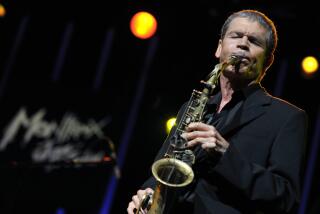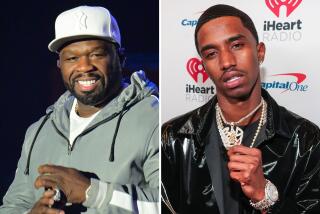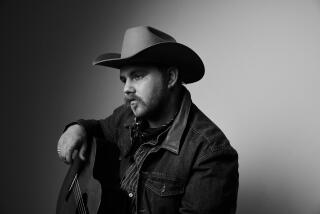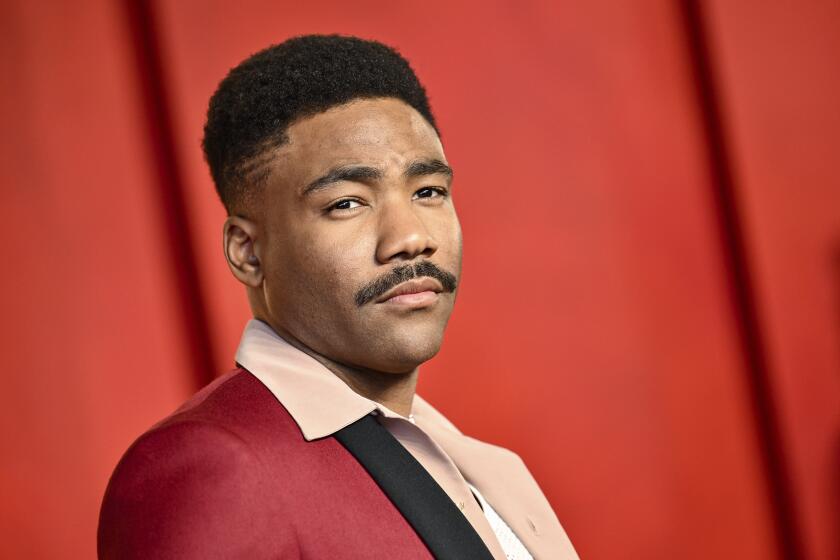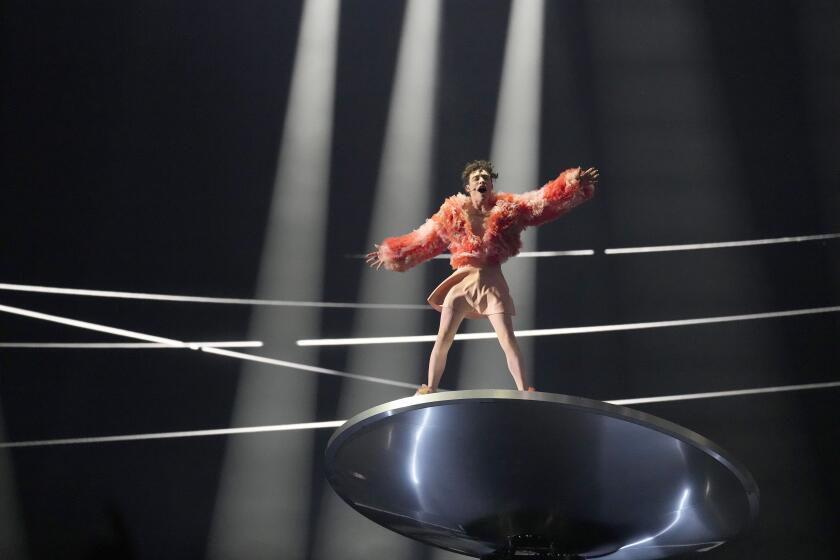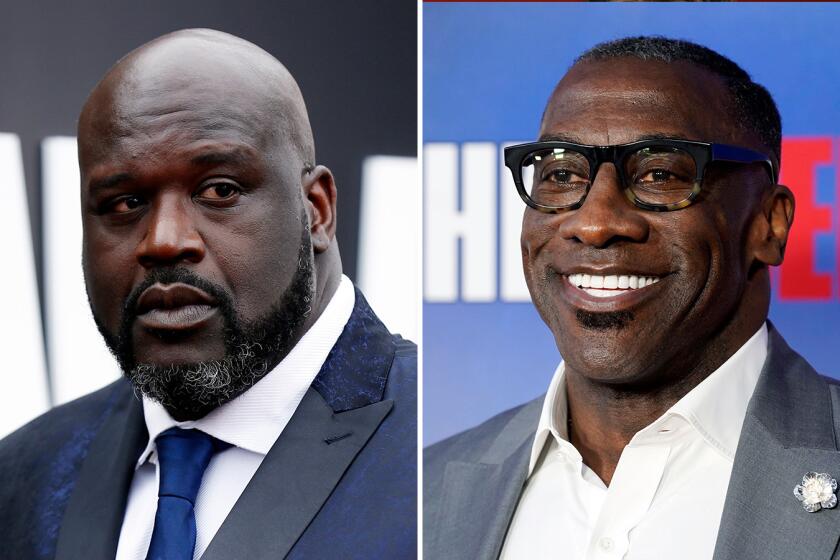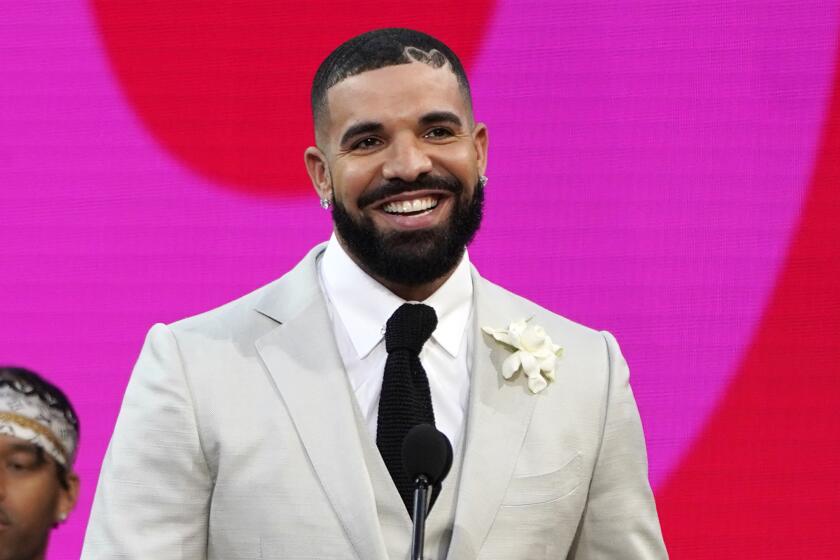Karaoke singers try to strike the right chord to discerning ears.
The going was tough at a karaoke competition held at an Inglewood nightclub Wednesday: Those with the nerve to step up on stage, grab a microphone and belt out some tunes also had to face the critical ears of Nat King Cole Jr. and other professional musicians.
Popular in Japanese lounges, karaoke (meaning empty orchestra) provides a singer with a microphone and background music. The singer takes it from there.
The Inglewood contest was a preliminary in an area-wide karaoke competition that is part of the 16-day 1990 Los Angeles Festival, which opens Saturday in San Pedro. The contest, whose top winner will fly to Asia with a recording contract and $2,000 in hand, is attracting everyone from off-key amateur hacks to real ear-perking vocalists.
One contestant, Esther Collins, wooed the judges with the emotional power of her voice and her stage presence. She shut her eyes during the introduction to “The Greatest Love of All” and swayed as she crooned the lyrics. She showed enough verve to win fourth place.
“She’s got to take her time,” Cole, the son of the silky-voiced jazz singer whose career spanned the 1940s through the early 1960s, whispered from a darkened corner of the nightclub where he and the other judges sat.
When Collins finished, Cole was satisfied that she had gotten it right. “That feeling really showed through,” he said, in one of his more generous critiques of the evening.
Although Cole frequently leaned his right ear toward the stage, he was assessing the entire performance--taking in composure, attire, song selection and a lot of other ingredients too small for the amateur to dissect.
He penalized one male singer for wearing an opened-collared shirt. “Whenever you sing you have to wear a tie,” Cole said. “He looks like he came out of a garbage can.”
Another drew the wrath of Cole because he used a cheat sheet to help with the lyrics.
“That’s poor already,” Cole said as the man opened his song. “He’s off-key, too.”
The competition, sponsored by the karaoke music manufacturer Nikkodo International, will move on to nightclubs in Los Angeles, Montebello and Hollywood in the coming weeks. The top five finishers in each preliminary will move on to next month’s semifinal contests. The sponsors are hoping to attract contestants from many ethnic groups and give a boost to karaoke, which has a following in a number of Southern California nightspots.
The African-American, Anglo, Chinese, Filipino, Latino, Japanese and Korean communities will each send two semifinal winners to the finals Sept. 30 at the Pasadena Civic Auditorium. Whoever comes out on top will win a recording contract with Polydor Records, a trip to Japan and Hong Kong, plus $2,000 in cash and other prizes.
“We’re trying to expose the talent that is out there in all the communities,” said Larry Colvin, a singer who organized the contests in the black community. “Some of these contestants may have the spark of talent that can make them a success.”
Colvin said he has encouraged singers to venture from the popular music that most choose to forms like rap, opera and religious music. The only rule, he said, is that contestants cannot be professional singers who have a recording on the market. “Whatever you have, bring it on stage,” he said. “I want everybody involved in this.”
A desire to make the big time was a long way off for some of the contestants, who admitted later that they appeared on stage primarily for fun.
Others, however, were intent on winning.
Take Larry Sanders, 29, who showed up at the Inglewood contest to check out his competition. “My goal is to go all the way,” said Sanders, who was scheduled to sing in Venice at a later competition.
Another serious singer, Robert Joseph, had his manager register him for the competition. He reached out his arms to the judges as he sang, using gestures that Cole considered “just fine.” He went on to win second place.
The hit of the evening was Brenda Biagg, who had a voice that compelled even other contestants to stand and applaud.
Biagg--who sang “At This Moment” about the moment her lover tells her he doesn’t love her anymore--was the one who finally won over Cole. She was dressed like a singer; she enunciated; she was on key; she memorized the lyrics; her breathing seemed fine, and she could hold a note like a pro.
“She could put over a song,” Cole acknowledged, as he gave her the perfect 100 that helped her edge out Joseph for the first-place trophy.
More to Read
The biggest entertainment stories
Get our big stories about Hollywood, film, television, music, arts, culture and more right in your inbox as soon as they publish.
You may occasionally receive promotional content from the Los Angeles Times.
